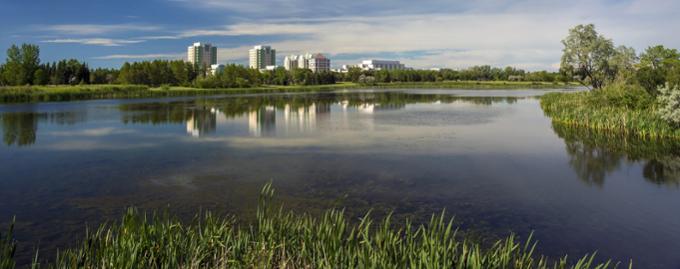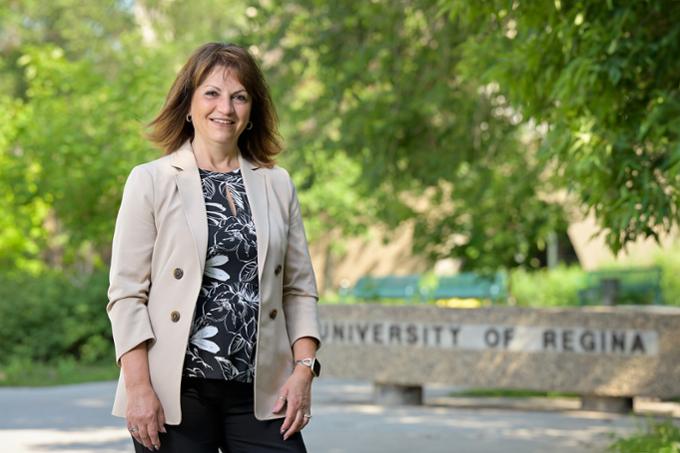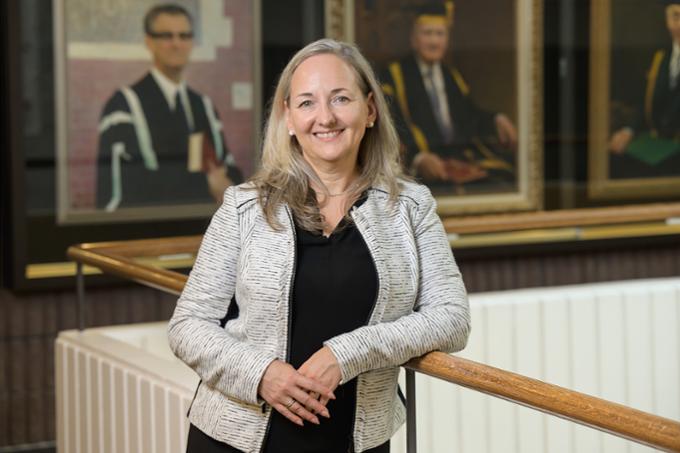
Leadership
President's Executive Team
The President's Executive Team guides the operations of the University of Regina and works closely with the President to accomplish yearly objectives. Learn more about the roles and responsibilities of each of these team members below.
President and Vice-Chancellor
Jeff Keshen, PhD
Reporting to the Board of Governors, the President and Vice-Chancellor of the University of Regina leads the development and implementation of the University’s three-part academic mission of teaching, research, and service to community. In this capacity, the President engages with students, faculty, staff, and stakeholders such as government and members of the wider community to define and realize the University’s educational and administrative vision.
Working together with the University Executive Team and guided by a set of strategic objectives that are developed annually in conjunction with the Board of Governors and other members of the University community, the President is ultimately responsible for all operations of the institution.
Provost and Vice-President (Academic)
david Gregory, PhD
The Provost and Vice-President (Academic) is the University's senior academic and operating officer, with significant responsibility for the day-to-day functioning and management of the institution and its advancement within the framework established by the Strategic Plan. In the absence of the President, the Provost acts on their behalf.
Key responsibilities of the Provost include managing academic operations and budgets across all Faculties and academic units; overseeing initiatives that support student recruitment, retention and experience; and cultivating academic relationships with federated college partners and affiliated institutions. Representation of the university's interests extends to provincial and national bodies, advancing partnerships and addressing matters related to academic programs, curricular renewal, and market development while promoting academic quality and fiscal sustainability.
Strategic academic priorities are evaluated and defined in collaboration with collegial governance structures, aiming to enhance the university's academic reputation nationally and internationally.
Vice-President (Research)
Christopher Yost, PhD
The Vice-President (Research) provides leadership to the Office of Research Services and Office of Research Partnerships & Innovation, to the numerous University Research Centres and Institutes and also to the Faculty of Graduate Studies and Research; promotes and expands research and scholarly initiatives across the University; seeks research funding and opportunities; and collaborates with national and international partners.
As the senior officer responsible for research, the Vice-President (Research) provides direction and support in the development and implementation of University goals, objectives and strategic plans to advance research, and graduate studies; works closely with all Faculties and the various academic and administrative support units to develop and implement strategies and seek external partners (local, national, and international) to enhance the University's research infrastructure and opportunities for high quality research and training.
Vice-President (Administration)
Dianne Ford, MBA
Responsible for the University’s non-academic services, the Vice-President (Administration) leads the administration functions of the University by developing a holistic business plan that encompasses the aspirations and future needs of the University. Building strong partnerships with government officials, the Vice-President (Administration) strategically anticipates the needs of both internal and external stakeholders and interacts with government officials and other funding bodies to promote the University’s contributions to ensure an appropriate share of resources. The Vice-President (Administration) also interacts with the Board of Governors about operational areas within their portfolio and is the primary management liaison with the Board Committees responsible for key areas of the Administration portfolio.
Responsible for leading the budget process, the Vice-President (Administration) strategically introduces structural changes where needed and oversees the management of the University’s finances in a manner that gives comfort about the financial integrity and sustainability of the University operations to the President and Board of Governors.
The Vice-President (Administration) adopts an analytical approach to making sound decisions regarding the physical development of the campus. Employing a progressive yet prudent strategy for financial management, fostering a culture of innovation in information technology, and ensuring all decisions prioritize students' needs while aligning with the University’s strategic priorities, the Vice-President (Administration) plays a key role in sharing the University of Regina's story with the world.
Chief Governance Officer
Glenys Sylvestre, FCPA, FCA, C.Dir.
The Chief Governance Officer is responsible for all aspects of governance to support the institution’s decision-making processes, implementation of bylaws and policy, monitoring and mitigation of key risks, as well as for accountability through communication and reporting to internal and external stakeholders. The position is also formally designated as the University Secretary as defined in The University of Regina Act. The University Secretary is appointed by the Board of Governors and is responsible in that role to the Board in performance of all duties assigned under The Act, to keep all records necessary to the office and to perform such other duties as the Board, the Senate, or the Council may require.
Additional responsibilities of the Chief Governance Officer include privacy compliance and access to information, internal audit, and protocol and ceremonies (convocation). Oversight of the University’s communications and marketing, institutional research, and government relations functions are part of this portfolio.
The Chief Governance officer is accountable to the entire University community for the appropriate functioning of the University’s bicameral governance system, supporting advancement of the University’s academic, research and administrative priorities.




